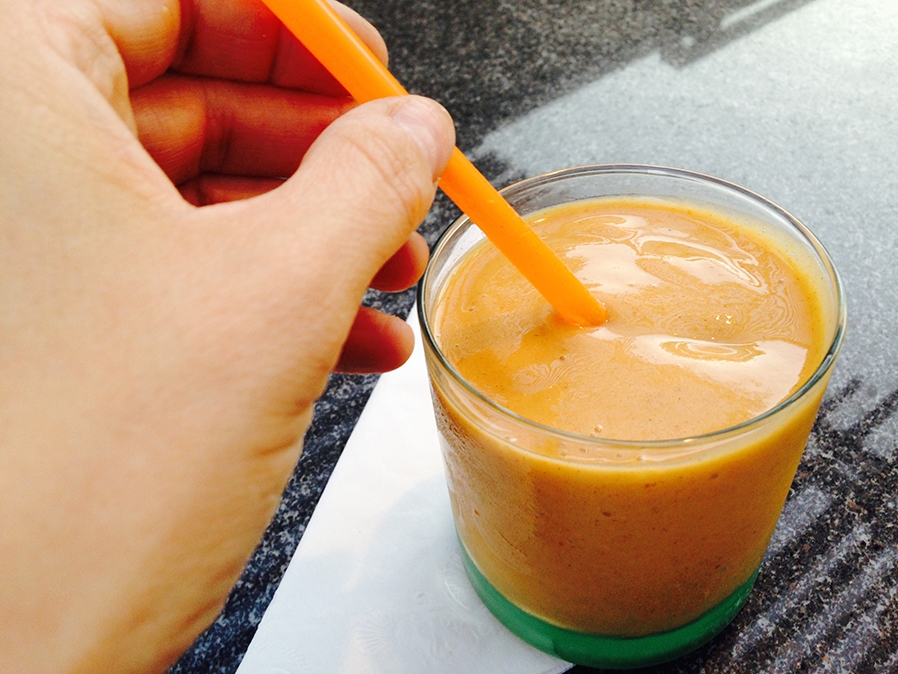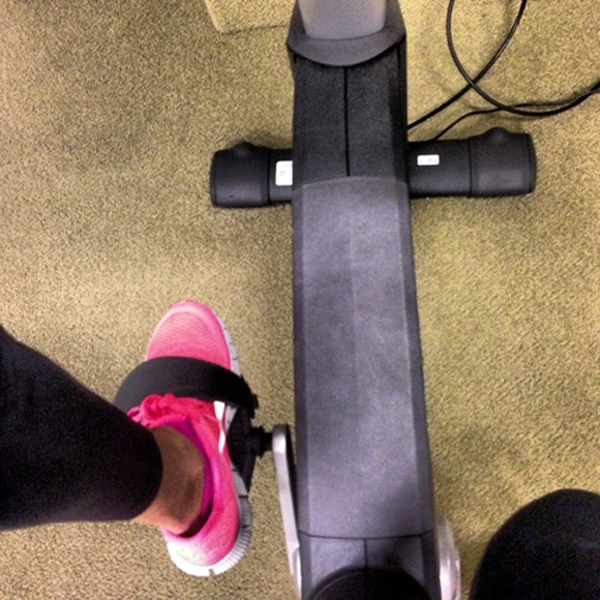
Negative stress can affect your game on so many levels. Thats how pervasive it is. When our grip is too tight on the golf club we create tension in the hands and arms which interfere with a smooth and powerful golf swing.
Full Answer
Is golf a stress-free sport?
The reality is, golf will never be a stress-free sport, especially when you realise you can use stress to improve performance and arousal. Mindfulness training is a great tool to help your brain be in the present moment and focus on what is currently happening to your body. Learning to control your thoughts and emotions reduces cognitive anxiety.
Can stress be your super power on the golf course?
Use stress as your super power on the golf course and learn to control your cognitive and somatic anxiety with your breathing, mindfulness and eye training. Emma Ferris is a breathing coach and physiotherapist working to create change in how golfers perform and manage stress.
How does anxiety affect your golf performance?
In golf, this relates to cognitive anxiety. Research has shown that the top performing golfers have relaxation practices, attentional and emotional control. In other words, these top golfers have learned tools to help harness their body’s physiology and psychology. Cognitive anxiety has a huge impact on sports performance.
Why do my arms and legs hurt when I play golf?
This has an influence over the stress muscles that can become tight, restrict pelvic movement and in particular for golf, impact force transfer through the lower limbs to the torso and arms. The main muscular culprits are your hip flexors, glutes and the accessory (back up breathing) muscles around your neck and shoulders.

How do golf courses deal with stress?
5 Tips for Calming Your Nerves on the Golf CourseChew Gum. There have been a number of studies done on the effects of chewing gum on the brain. ... Take Deep Breaths. The next thing you can do to calm your nerves is to take some deep breaths. ... Visualize Success. ... Live in the Moment. ... Get Excited.
Why is golf so stressful?
"It can be particularly stressful because, unlike team sports, you very much have the spotlight on you while you're playing," he said. "You've got a lot of time between your shots for you to think, time for other people to watch you and time for you to think about what people will think of you if you don't play well."
Is golfing a stress reliever?
Golf reduces stress and increases mental capacity, creativity and ability to solve problems, all of which are undoubted positives. The natural environment helps relieve stress while the social aspects allow you to make new friends easily.
Why is golf so hard mentally?
The physics of the game make it very hard to play intuitively. While some golfers claim to be self guided, none at the highest level do. You cannot see the club hit the ball on full shots. It is too fast.
How do you control your emotions on the golf course?
3:525:07How To Control Your Emotions And Handle Negative Thoughts On The ...YouTubeStart of suggested clipEnd of suggested clipTry. And do it through breathing don't let the shoulders rise. Keep your shoulders nice and levelMoreTry. And do it through breathing don't let the shoulders rise. Keep your shoulders nice and level let your stomach tummy expand out and let it contract in when you breathe out.
How do you deal with golf anxiety?
Use these four ways to overcome nervousness on the golf course anytime you are feeling challenged by your anxiety.Embrace your nervousness on the golf course. ... Breathe and slow down when golfing. ... Visualize success in the game of golf. ... Focus on the process, not the results on the golf course.More items...•
How can I mentally play better in golf?
Top 10 Golf Mental Tips 🏌️♂️Use your routine that you've practiced during every golf round. ... Practice putting with only 1 ball. ... Making a pre-round warm-up a habit. ... Warming up your body as well as your mind. ... Structure your golf practices (setting routines and goals) ... Appreciate your hard work practicing golf.More items...•
How does golf affect mental health?
Golf provides mental wellbeing benefits, research highlights that golf can help individuals improve their confidence, self-esteem and anxiety levels. Physical activity is a proven treatment for depression and anxiety. It helps prevent anxiety, depression, and dementia.
Is golf good for your heart?
Golf can be good for your health and your heart. Walking an average course for a round of golf can be between five to seven kilometres. If you walk 18 holes three to five times a week, you'll get an optimal amount of endurance exercise for your heart.
Is golf more mental or physical?
“The game of golf is 90% mental and 10% physical.” This quote has been used by Jack Nicklaus many times to help describe how tough the game really is.
How many years does it take to master golf?
It can take up to six months for a beginner to even master hitting the ball the right way. Yes, you read correctly, six months. The reason is that hand-eye coordination required for golf is severely underrated.
How do I regain my confidence in golf?
Ten Tips to Build Confidence For GolfDon't be Self Critical. ... Don't Give Yourself Technical Feedback on the Golf Course. ... Visualize and Feel. ... Develop a Strong Shot Routine. ... React Indifferently to Bad Shots. ... Take Yourself Out of Your Comfort Zone. ... Change Your Goals. ... Focus On What You Did Well.More items...•
Is golf good for your mental health?
Among its published findings was that playing golf regularly can help “reduce anxiety, improve confidence and boost self-esteem, all of which contribute to improved mental well-being.” According to Hawkes, former chief medical officer of the European Tour, those findings played a role in government officials ...
How do I get better at golf mentally?
0:048:20Top 5 tips to help you conquer the MENTAL game - YouTubeYouTubeStart of suggested clipEnd of suggested clipTwo or three golf balls on the practice screen and just pop with the right hand the right hand isMoreTwo or three golf balls on the practice screen and just pop with the right hand the right hand is all about feel. So this is going to give you a good idea how quick the greens are on that.
How to stop golfers from thinking about poor scores?
Block out any negative thoughts. Golfers would not think about poor scores by engaging in positive self-talk. It doesn’t matter as long as they are trying hard, and telling themselves they have the ability to get things back.
What do golfers talk about in stuedies?
Most of the golfers in the stuedies had caddies, so they would speak with their caddie and discuss things that were golf-related, but also non-golf related to take their mind off the potential stress in between shots.
What is the key to coping with stress?
A key to coping effectively with stress is being aware of how your normal response to stress is and being aware of how you cope. These golfers were completely unaware of what they were doing.
How to reduce stress in golf?
Practice deep breathing for managing stress in the short term, regularly practice golf relaxation techniques, and pay close attention to your nutrition. Beyond physical stress reduction, there are also many mental ways to lower your tension and peak performance.
What are the symptoms of golf stress?
You can also scan for physical signs of golf stress such as drawn shoulders, clinched fists, tight face, furrowed brow, and the stretching of the neck or lower back forward. On the Course: good times to scan your body ...
How to reduce tension in your chest?
Tip: Place one hand on your stomach and one hand on your chest. Which hand moves as you breathe? Practice diaphragmatic deep breathing.
Why is it so hard to manage anxiety?
As blood sugar fluctuates, tendencies towards anxiety can increase or become difficult to manage.
How to tell if you are stressed out in golf?
Several times during the round or day scan your body for tension. Check locations where you feel your tension the most, such as shoulders, neck, abdomen, jaw, face, back, etc. You probably notice unusual tightness in these muscles. You may have related pain or stiffness, such as headaches, neck aches, backaches, jaw pain or digestive problems in these areas. You can also scan for physical signs of golf stress such as drawn shoulders, clinched fists, tight face, furrowed brow, and the stretching of the neck or lower back forward.
Why do we breathe in a relaxed state?
It is the breathing our bodies use when we sleep. Air is pulled deep into the lungs as the diaphragm expands and is exhaled as it contracts. This is said to trigger our relaxation response and reduce stress.
How to relax your body?
When your “body checks” reveal tension, use diaphragmatic breathing to relax. Use the previous steps with these modifications: 1 Start by exhaling fully to open your lungs 2 Inhale deeply and slowly, pushing your abdomen out 3 Hold your breath for several seconds 4 Exhale slowly as you say to yourself “relax” and imagine tension flowing from your body
What is stress and how does it affect golf?
At its core, stress is a very primal reaction. It’s our bodies’ way of dealing with a perceived threat or danger. And while it may have helped our ancestors not to get eaten by scary predators many years ago, nowadays stress seems to serve purely as a way to drive us up the wall!
Reducing the amount of stress you bring onto the course
You can have a million on-the-course techniques, but if you’re turning up to the first tee with a bucket load of stress, you’re going to have a bad game.
Harnessing stress on the golf course
The first step to dealing with stress on the golf course is to accept it.
Reducing negative stress on the golf course
Although having a certain amount of stress can be beneficial, it’s about getting a balance. When stress levels start getting too high, there are a few simple techniques you can use to regain control.
Know your own mind and own your stress
The main thing to remember is that stress affects us all in different ways. The key to controlling stress is to understand how it affects you. From the triggers and thought processes to the behaviours and physical effects, knowing where stress comes from and what it does will help you tame it and wear it like a glove.
Why do people play ego golf?
Whether it’s your peers, playing partners, college coaches or parents, many golfers play “ego golf”, which inhibits their performance and exacerbates the feelings from making mistakes.
How to improve your golf game?
Playing the course both at practice rounds and in your mind. Having a clear course strategy for golf. Knowing your misses and what to do to correct them. The same pre round warm up routine for every round. Feeling prepared will increase your confidence and lower performance anxiety. 4.
What happens when you have performance anxiety?
On the range, with no consequences, the swing is free and fluid, the mind is quiet and focused on the target. When performance anxiety kicks in, focus on the target is often replaced by focus on the trouble and the swing, which gets tense and quick. Timing and coordination gets compromised. If there’s a gap between your performance in practice ...
How to overcome performance anxiety?
Practice. Practicing in a way that will raise performance anxiety will train you how to manage it and focus on your process when you feel nervous. Make practice hard with golf practice games and have consequences to the challenges. Use your imagination to experience how it will be to play at the level you want to play at.
How to improve your concentration?
Medititation is a great way to improve your concentration, awareness and ability to stay more present (where fear doesn’t exist). 8. Tap into your subconscious. The more belief and trust you have in yourself, the less performance anxiety you will have.
What happens when you care about what you are doing?
If you care about what you are doing, then your nervous system will become “activated” to get you ready for action. You might have felt this as butterflies, or in some cases, your heart pounding, your mind racing, sweating, shaking and tension in your muscles.
How to be a good golfer?
You’ll need to put in the work to be able to trust your abilities in tournaments. This will involve: 1 Practicing the shots required for that particular course 2 Playing the course both at practice rounds and in your mind 3 Having a clear course strategy for golf 4 Knowing your misses and what to do to correct them 5 The same pre round warm up routine for every round
What is the difference between great golfers and the best golfers?
The KEY difference between Great Golfers & the BEST! Golfers like Tiger Woods seem to thrive from anxiety. Others let the pressure of the moment destroy their psyche. Regardless of competing in a tournament, or playing with friends, golfers deal with a level of anxiety before each shot.
Why do golfers fall apart?
The best golfers push through. But a lot of good golfers are crippled by their anxiety . While he or she might play well during a casual round, they fall apart in tournaments or money games. Self-doubt and low self-esteem are problems caused by this type of anxiety.
What is performance anxiety?
Performance anxiety happens when a golfer dwells on all the made-up outcomes that have not yet happened. Focusing on a desirable future outcome helps switch anxiety into anticipation. The golfer then focuses on a positive thought process like cutting the corner to shorten a long par 5.
How to overcome anxiety while playing?
First, start by recognizing when anxiety hits the hardest while playing. Being aware is the first step.
How to stop stress in golf?
Taking a long deep breath can help reduce stress in the body and mind. Focusing on the breath calms the brain. This allows the golfer to stop wasting energy on a future outcome that is undesirable. Work on the breath along with other anxiety-relieving techniques such as mindful distractions or grounding to free your mind.
How does a golf course cause anxiety?
How a Golf Course Causes Anxiety. The “Island Green” 17th Hole at TPC Sawgrass. Anxiety can cause the golfer to focus on a previous bad shot. An upcoming obstacle can create a negative mental obsession: The white stakes on the right side of the fairway. The par 3 with a lake to hit over.
Can stimulants cause anxiety?
Stimulants provoke anxiety. Reducing the consumption of stimulants can help overcome performance anxiety. A golfer should access his or her diet and see if stimulants could be an underlying cause. Proper food consumption should still take place before playing for performance reasons.
How does cognitive anxiety affect sports performance?
Cognitive Anxiety. Cognitive anxiety has a huge impact on sports performance. Our beliefs, self talk, doubt and fears all impact our cognitive anxiety. This then has a knock on effect to our body triggering a stress response as we perceive we are under threat or danger. This can then cause a somatic or body reaction.
Why is it important to breathe fast?
If you are breathing too fast and too frequently, you will exhale too much carbon dioxide which can stimulate an anxiety spiral . An anxiety spiral can start with a small trigger of a cognitive or somatic trigger that starts a change in breathing.
How does Emma work in golf?
Emma works both in her clinic, runs workshops around New Zealand and the world and works online teaching golfers how to breathe. One of the best ways to improve your golf is to look at your breathing pattern. Learn more about this with Emma on her online breathing course, Breathe Right & Reduce Your Stress 30-day.
What causes anxiety spirals?
An anxiety spiral can start with a small trigger of a cognitive or somatic trigger that starts a change in breathing. The decrease in carbon dioxide in the blood can trigger symptoms of feeling unwell, nausea panic, sweaty palms, making you breathe faster and more frequently, pushing you down the anxiety spiral.
How to get your body out of a fear breathing pattern?
This could be anything from sighing, to big inhales, to breath holding, to breathing fast. Before you go to tee off, I recommend taking a long exhale out the mouth just once. That gets the body out of a fear breathing pattern and helps reset the diaphragm your main breathing muscle to neutral.
Why is it important to change your breathing pattern?
It’s why learning to change your breathing pattern to a calm breathing pattern can override the body’s stress response and tell you that you are safe and reduce the feelings of anxiety. When out on the course, one of the best things you can do is become aware of your breathing.
How do you know if you are under pressure?
Heart racing, sweaty palms and stomach clenched are all warning signs from your body that you’re under pressure. The problem is, when you’re trying to be calm and collected at the tee or on the putting green, your body is flooding with stress chemicals. For many golfers, anxiety can be debilitating to their performance and career.
